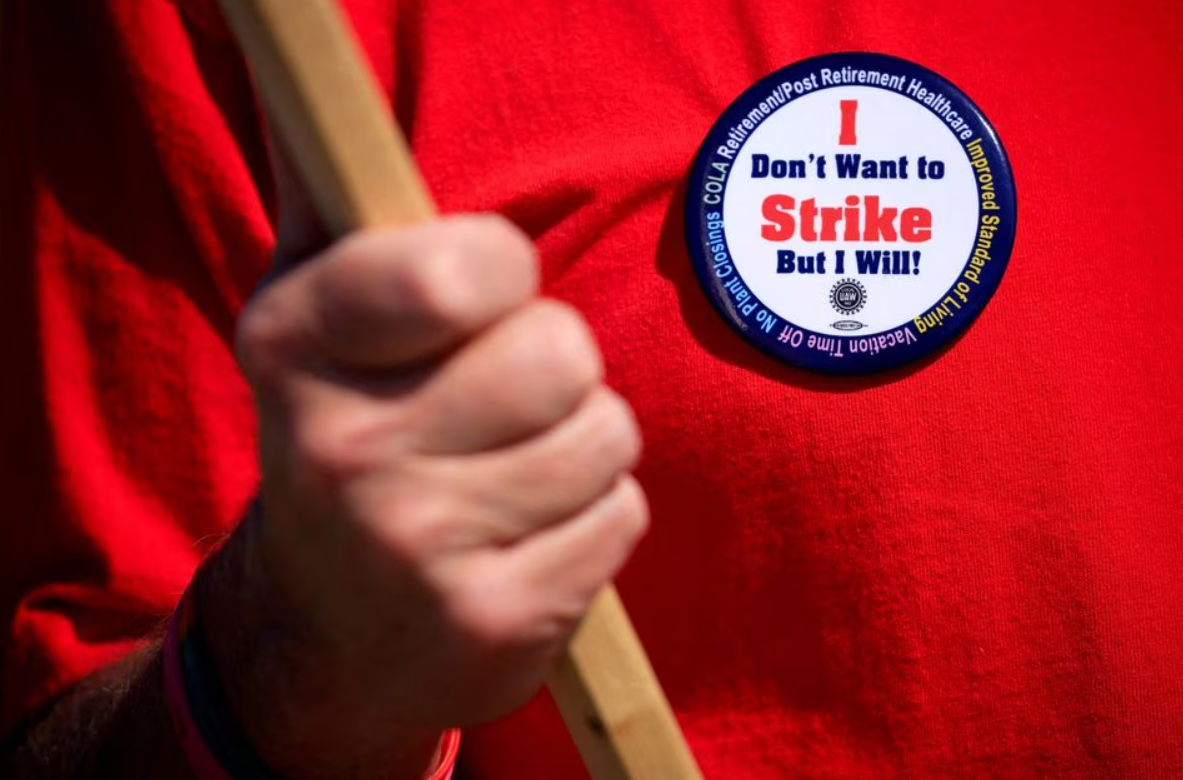
Businesses ranging from airlines to auto parts makers are starting to feel the heat from the month-long strike by hourly workers at the Detroit Three automakers, with analysts warning that the financial hit could increase if the walkout does not end soon.
With the United Auto Workers (UAW) strike entering its 36th day and the total economic cost pegged at more than USD7 billion, companies are counting the cost of lost revenue amid an uncertain economy and persistent inflation.
“The damage from the strikes will last long after UAW members return to work,” University of Michigan professor Erik Gordon said.
Workers will also be careful about how they spend their money since strike pay is lesser than regular pay, he said.
U.S. carrier Delta Air Lines earlier this month became one of the first big companies to flag a hit after it said the strike has curtailed a “significant” amount of business in Detroit.
Paints and coatings maker PPG Industries said earlier this week it had included a profit hit of a “few cents” per share in its fourth-quarter forecast, while railroader Union Pacific said the strike has had a small impact so far.
Analysts said trucking firms and suppliers that make parts for the General Motors, Ford Motor and Stellantis are among the most exposed to a strike, which has seen more than 34,000 workers walkout from their daily jobs.
“Trucking companies deliver a lot of the components that are assembled into cars. They and their workers will suffer,” Gordon said.
With major parts suppliers such as Aptiv, Magna International, Lear, and American Axle set to report in the coming weeks, investors will be watching out for the scale of the financial hit the companies may take.
“Suppliers are expected to feel the pinch from lower volumes in fourth quarter, but the pain will not be equally spread,” BofA Global Research analyst John Murphy said.
Lear and Magna have a double-digit sales exposure to the three automakers, while Aptiv has an exposure between 8%-9%, according to their latest annual filings.
Earlier this week, consultancy firm Anderson Economic Group estimated the economic losses related to supplier wages and earnings of about USD2.67 billion through fourth week of the strike.
French car parts maker Forvia on Friday warned of possible temporary layoffs after estimating a bigger sales hit in October from the strike.
The CEO of Swedish company Autoliv, the world’s largest producer of car airbags and seatbelts, told Reuters it had seen a very limited impact from the strike, but it could become a risk the longer it continues.
“When we have these kind of disturbances…in the global flows it’s not good,” its CEO Mikael Bratt said.
The UAW has waged an unusual campaign of simultaneous strikes against the Detroit Three automakers, demanding a 40% wage hike, including a 20% immediate raise, improvements in benefits, as well as covering EV battery plant workers under union agreements.
An agreement remains elusive so far and shares of automakers and suppliers have fallen since the strike began on Sept. 15.

